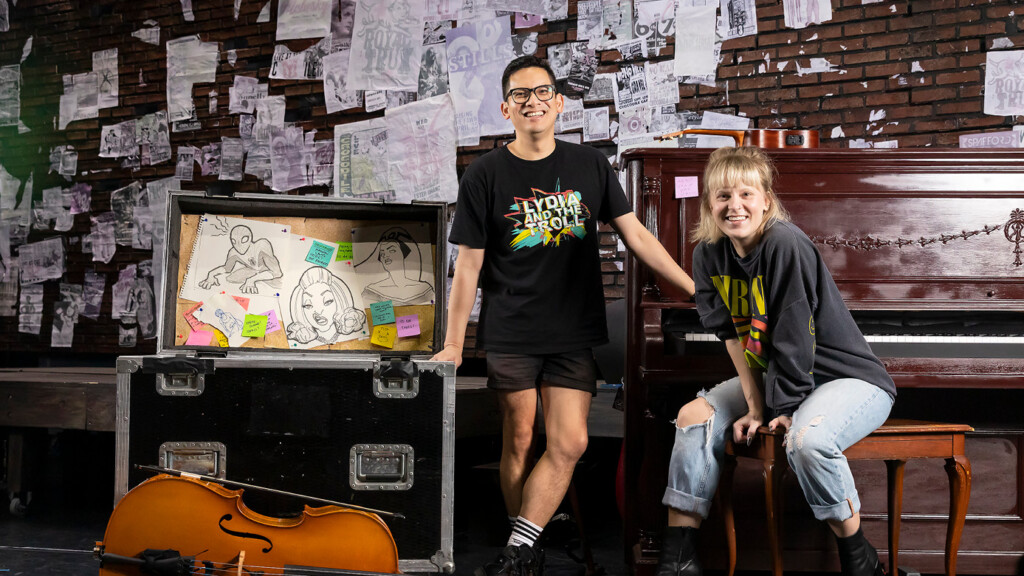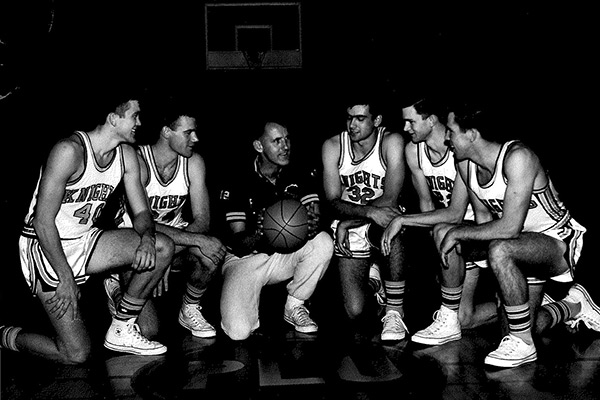Page 717 • (7,179 results in 0.117 seconds)
-

have ad blocker enabled or are currently browsing in a "private" window. LATEST POSTS A family with a “Bjug” legacy of giving and service September 27, 2024 PLU hosts the 14th Annual Lutheran Studies Conference: Celebrating Cecelia Svinth Carpenter, Indigenous education and tribal sovereignty September 23, 2024 PLU Welcomes the Class of 2028: Trailblazers September 11, 2024 Ethos in Action September 11, 2024
-
: The Science of Alcohol and Cannabis Wednesday, September 18, 2024 6pm to 7:30pm Lagerquist Concert Hall Does alcohol really make people more social? How do substances affect quality of sleep? Does cannabis/marijuana impact memory and attention? In this presentation, learn the answers to these questions and more. Resources: Situational Tolerance Video Check In with Yourself Washington On the Road On the Road: Nourishing Our Roots | Saturday, September 21, 2024 | Various Times & Locations On the
-
stressor, and was applied with incubation for one hour. In short, it was found the rate of NAD+ reduction was drastically decreased in ADH containing lysates when oxidized during education to 8.6% of the original velocity in the first sample, and to 26% in the second sample. The Shikimate Pathway Brianna K. Lindsey, Senior Capstone Seminar The shikimate pathway is a biosynthetic pathway for the synthesis of chorismate, the precursor the aromatic amino acids phenylalanine, tryptophan and tyrosine as
-
Nutrition & Health Lute Telehealth Lute Telehealth is a resource for PLU students that expands access to mental health and medical care by providing HIPAA compliant access to online or phone-based services 24/7/365. Lute Telehealth provides no cost, on-demand access to licensed mental health providers, nurse practitioners, and related services from the convenience and comfort of your phone or computer and at the location of your choosing. Check out Health Coaching in the app: How does Health
-
Experience, showcasing juried works from a diverse selection of national and international artists. Learn more here. Stone Soup PLU students showcase ceramics to be featured in our third annual Empty Bowls event, which raises money for charitable causes. The show is held in conjunction with the 2012 National Council on Education for the Ceramic Arts conference in Seattle.Senior Exhibition Join us as we celebrate the accomplishments of the graduating artists of the Department of Art & Design. 2010
-
: Mental Health Assessment & Intervention (4)SOCW 573: Policy Practice & Advocacy in Health Care (4) SOCW 585: Advanced Practicum Experience II (4)SOCW 595: Advance Practicum Experience III (4)SOCW 565: SUD Assessment & Intervention (4) SOCW 500+: Elective (4) Practicum ExperienceThe practicum experience is the signature pedagogy in social work education. At the Master’s level, students are required by CSWE to complete at least 900 hours of practicum work. Students have opportunities to practice their
-
in any 60-minute period and those employees who work in food service and environmental services positions are most affected. 5.2 Policy PLU will protect the health of its employees by recognizing the risks of temperature related injuries and illnesses and controlling those risks through a combination of employee education, administrative, engineering, and protective equipment controls. The use of these controls will vary based on the work environment and needs of the employees. 5.3
-

people about it, they are often surprised. Maybe it isn’t so surprising given what we learned at PLU — the values of a liberal arts education: going to small classes, and knowing our professors. We also learned a lot playing basketball on a team that traveled long hours on buses, playing in a cracker box gym, receiving five dollars for meal money each day, warming up before games to gospel music played on an old pipe organ. These experiences teach you something no class really can: teamwork
-
interest, I am struck by the general lack of concern for animals in universities. It seems to me that nonhuman animals have not fared well in American higher education. Photo taken during a J-term course in Uruguay in 2014 by Mariann Funkhouser (‘16) When I refer to academic animals, I am not referring directly to animal experimentation in universities, though this is a related issue. Rather, I refer to the ways academics are likely to conceptualize nonhuman animals—the animals we construct, the animal
-
individual sponsor — a member of the faculty or administrative staff; a department or program connection — signature of chair required; unit endorsement — signature of dean required. Offers should be coordinated by the Wang Center for Global and Community Engaged Education (where international visiting scholars’ arrangements currently are coordinated). Obligations of the Host: The initiating trio is responsible for hosting the visitor (international visitors in particular may need assistance with housing
Do you have any feedback for us? If so, feel free to use our Feedback Form.


